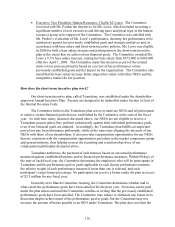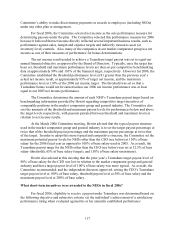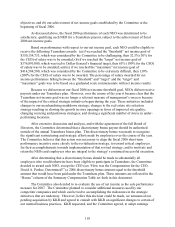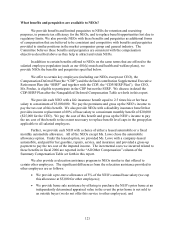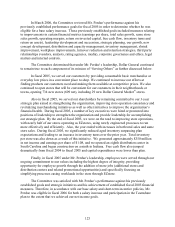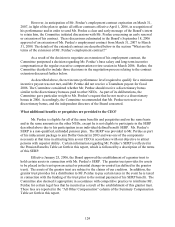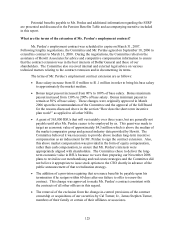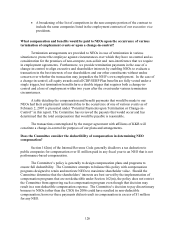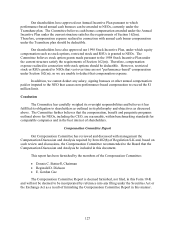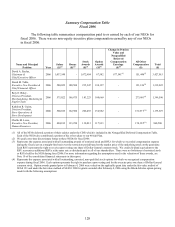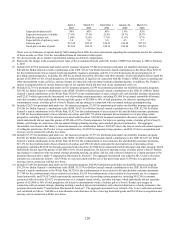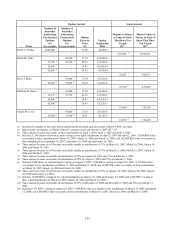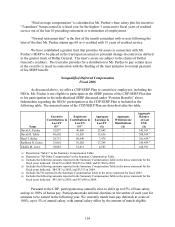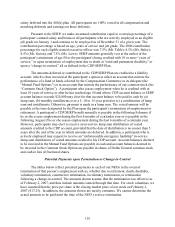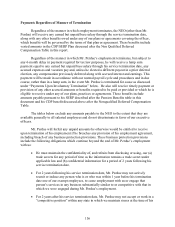Dollar General 2006 Annual Report Download - page 128
Download and view the complete annual report
Please find page 128 of the 2006 Dollar General annual report below. You can navigate through the pages in the report by either clicking on the pages listed below, or by using the keyword search tool below to find specific information within the annual report.• A broadening of the list of competitors in the non-compete portion of the contract to
include the same companies listed in the employment contracts of our executive vice
presidents.
What compensation and benefits would be paid to NEOs upon the occurrence of various
termination of employment events or upon a change-in-control?
Termination arrangements are provided to NEOs in case of termination in various
situations to protect the employee against circumstances over which they have no control and as
consideration for the promises of non-compete, non-solicit and non-interference that we require
in employment agreements. Furthermore, we provide termination payments in the case of a
change-in-control to align executive and shareholder interests by enabling NEOs to evaluate a
transaction in the best interests of our shareholders and our other constituents without undue
concern over whether the transaction may jeopardize the NEO’ s own employment. In the case of
a change-in-control, all equity awards and all CDP/SERP Plan benefits are fully vested under a
single trigger, but termination benefits have a double trigger that requires both a change-in-
control and a loss of employment within two years after the event under various termination
circumstances.
A table detailing the compensation and benefit payments that would be made to our
NEOs had their employment terminated due to the occurrence of one of various events as of
February 2, 2007 is presented under “Potential Payments upon Termination or Change-in-
Control” in this report. The Committee has reviewed the payouts that would occur and has
determined that the total compensation that would be payable is reasonable.
The transactions contemplated by the merger agreement with affiliates of KKR will
constitute a change-in-control for purposes of our plans and arrangements.
Does the Committee consider the deductibility of compensation in determining NEO
compensation?
Section 162(m) of the Internal Revenue Code generally disallows a tax deduction to
public companies for compensation over $1 million paid in any fiscal year to an NEO that is not
performance-based compensation.
The Committee’ s policy is generally to design compensation plans and programs to
ensure full deductibility. The Committee attempts to balance this policy with compensation
programs designed to retain and motivate NEOs to maximize shareholder value. Should the
Committee determine that the shareholders’ interests are best served by the implementation of
compensation programs that are not deductible under Section 162(m), the policy does not restrict
the Committee from approving such a compensation program even though that decision may
result in a non-deductible compensation expense. The Committee’ s decision to pay discretionary
bonuses to NEOs (other than the CEO) for 2006 could have resulted in non-deductible
compensation; however these payments did not result in compensation in excess of $1 million
for any NEO.
126


